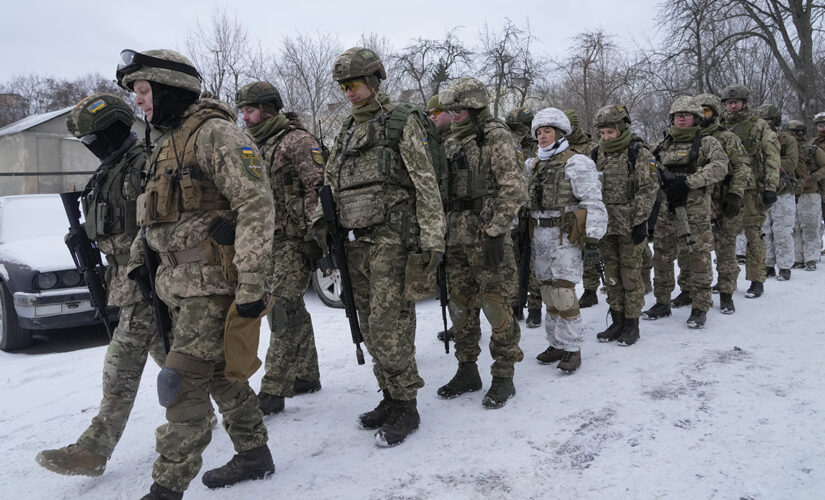NEWYou can now listen to Fox News articles!
The mayor of Kyiv, Ukraine’s capital city, pleaded with the U.S. and Germany telling them, “We can’t defend our country” from Russia.
At the closing of the Munich Security Conference on Friday, Mayor Vitali Klitschko addressed U.S. Secretary of State Antony Blinken and German Foreign Minister Annalena Baerbock and said Kyiv needs “defensive weapons” to protect itself from its mammoth neighbor.
“We’re ready to fight, we’re ready to defend our families, our states, our cities, our citizens – we need support,” he said.
Heavyweight boxing champion turned Kyiv mayor Vitali Klitschko, talks to AFP journalists at his office in Kyiv on Feb. 10, 2022.
(SERGEI SUPINSKY/AFP via Getty Images)
The Kyiv mayor thanked the countries for the support they have so far provided, but warned “it’s not enough.”
“We can’t defend our country,” Klitschko added.
Blinken reminded the mayor that the U.S. has provided Ukraine with $650 million in defensive aid but vowed to continue to work with Ukraine and NATO allies to deter Russia from invading the former Soviet nation.
“There is a growing recognition that what is happening in Ukraine matters first and foremost to Ukrainians, but it should matter to everyone in the world,” Blinken said. “What’s at stake are larger principles that are the foundation of the entire international order established after two World Wars and the Cold War…basic principles that are needed to maintain peace and security.
“We will continue to do everything we can for you, with you and with our partners,” he added.
The German foreign minister took a different tack and sympathized with Klitschko but did not falter in the government’s previous decision not to provide Ukraine with defensive aid.
U.S. Secretary of State Antony Blinken, left, and German Foreign Minister Annalena Baerbock, right, attend a discussion during the Munich Security Conference in Munich, Germany, Friday, Feb. 18, 2022.
(AP Photo/Michael Probst)
Despite the approval to send defensive weapons to Ukraine from NATO allies like the U.S., U.K. and surrounding Baltic nations, Germany has refused to provide arms to Kyiv as Russia continues to build up its forces, numbering around 150,000-strong, along Ukraine’s border.
Germany drew condemnation from Ukraine last month after it responded to a request for military equipment, specifically helmets, by sending what Klitschko described as inadequate.
STATE DEPARTMENT HITS BACK AT RUSSIA ‘PROPAGANDA,’ SAYS TROOPS MOVING ‘INTO FIGHTING POSITIONS’
Berlin agreed to send 5,000 military helmets to Kyiv, but Ukrainian ambassador to Berlin, Andriy Melnyk, said the support was merely a “symbolic gesture” as Ukraine needs equipment for hundreds of thousands of soldiers.
“The behavior of the German government leaves me speechless,” the Kyiv mayor told a local news outlet in January according to a Reuters report. “The defense ministry apparently hasn’t realized that we are confronted with perfectly equipped Russian forces that can start another invasion of Ukraine at any time.”
“What kind of support will Germany send next?” Klitschko questioned. “Pillows?”
The German foreign minister responded to the mayor’s condemnation Friday and said, “I’m sorry it was only 5,000.”
Baerbock said Germany was now looking at a “new list” of equipment that they could provide Ukraine with.
A participant of an open civil defense exercise aims at a target, Uzhhorod, western Ukraine, on Feb. 13, 2022.
(Serhii Hudak/ Ukrinform/Future Publishing via Getty Images)
CLICK HERE TO GET THE FOX NEWS APP
“We have to ensure that the destabilization doesn’t come from inside,” she continued. “I truly believe the financial support is as important as the support with regard to security.”
Germany has refused to send defensive aid and argued it could otherwise provoke Russia into attacking Ukraine.




